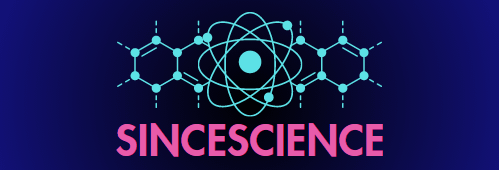Introduction:
In the dynamic realm of digital marketing, staying ahead of the curve is crucial for the success of any SEO agency. One powerful tool that can significantly contribute to this success is Project SERP. In this article, we will explore how to leverage Project SERP to create an effective content calendar that not only resonates with your target audience but also boosts your SEO agency visibility.
Understanding Project SERP:
Before delving into the intricacies of content planning, let’s grasp the essence of Project SERP. Search Engine Results Pages (SERPs) are the pages displayed by search engines in response to a user’s query. Project SERP is a comprehensive tool designed to analyze these pages, providing valuable insights into keyword rankings, competitor performance, and content gaps.
Keyword Research for SEO Agency Dominance:
Identifying High-Impact Keywords: To kickstart your content calendar, begin by identifying keywords relevant to your SEO agency. Project SERP’s keyword analysis feature allows you to pinpoint high-impact keywords that align with your agency’s services.
Competitor Keyword Analysis: Project SERP enables you to monitor your competitors’ keyword strategies. By understanding their focus, you can identify opportunities to outshine them in search engine rankings. Incorporate the “seo agency” keyword strategically to enhance your visibility.
Crafting an Effective Content Calendar:
Monthly Themes and Topics: Leverage Project SERP to identify trending topics and themes in your industry. Create a monthly content calendar with themes that align with your agency’s expertise. Ensure that each theme incorporates the “seo agency” keyword naturally.
Aligning Content with User Intent: Analyze the search intent behind keywords using Project SERP. Tailor your content to match user expectations, providing valuable insights and solutions. This user-centric approach enhances engagement and reinforces your agency’s authority.
Optimizing Content for SEO Agency Success:
On-Page SEO Best Practices: Implement on-page SEO strategies by optimizing meta titles, descriptions, and headers. Utilize Project SERP to monitor how well your optimized content performs in search engine rankings. Regularly update and refine your content based on these insights.
Backlink Opportunities: Project SERP’s backlink analysis feature is invaluable for identifying potential linking opportunities. Establishing a robust backlink profile boosts your SEO agency’s credibility and authority. Incorporate the “seo agency” keyword in anchor text when building backlinks for added relevance.
Monitoring and Adapting:
Regular Performance Analysis: Continuously monitor your content’s performance using Project SERP. Track keyword rankings, user engagement, and other relevant metrics. Identify patterns and adjust your content calendar accordingly to maintain and improve your agency’s visibility.
Staying Agile in a Dynamic Landscape: The digital landscape evolves rapidly. Project SERP equips your SEO agency with real-time data to adapt swiftly. Embrace agility in your content strategy, ensuring that it remains aligned with the latest trends and search engine algorithms.
Collaborating with Project SERP for Social Media Integration:
Social Media Content Alignment: Extend the reach of your content by aligning your social media strategy with Project SERP insights. Share snippets, infographics, and key takeaways from your articles across platforms, integrating the “seo agency” keyword where relevant.
Engaging Your Audience: Leverage Project SERP data to understand the social media platforms where your target audience is most active. Craft engaging content that encourages interaction, sharing, and discussion. The more your audience engages, the more likely your SEO agency will be recognized as an industry leader.
User Feedback and Iteration:
User Comments and Feedback: Actively encourage user comments on your blog posts and social media. Project SERP can assist in monitoring these interactions. User feedback provides valuable insights into audience preferences and concerns. Address comments, and consider them when refining your content calendar.
Iterative Refinement: Content planning is an iterative process. Regularly revisit your content calendar with insights from Project SERP. Update and refine your strategy based on changing trends, algorithm updates, and audience behavior. This proactive approach ensures your SEO agency remains at the forefront of the industry.
Case Studies: Realizing SEO Agency Success Stories:
Utilizing Project SERP for Case Studies: Showcase your SEO agency’s success stories through case studies. Use Project SERP to highlight specific instances where your content strategy led to improved rankings, increased visibility, and tangible results. Illustrate the role of the “seo agency” keyword in these success stories.
Demonstrating Expertise: Position your agency as an authority in the field by incorporating Project SERP data into case studies. Illustrate how your strategies, guided by SERP insights, have consistently delivered exceptional results. This not only attracts potential clients but also reinforces your agency’s credibility.
Automation for Efficiency:
Utilizing Project SERP for Automation: Take advantage of Project SERP’s automation features to streamline your content creation process. Set up automated keyword tracking, receive alerts for ranking changes, and use data-driven insights to refine your content calendar efficiently. Automation allows your SEO agency to stay agile without compromising on quality.
Efficient Reporting: Project SERP provides robust reporting capabilities. Generate comprehensive reports showcasing the impact of your content strategy, including keyword rankings, traffic growth, and engagement metrics. Use these reports not only for internal analysis but also to demonstrate the value of your services to clients.
Future-Proofing Your Strategy:
Adapting to Algorithm Changes: Search engine algorithms are constantly evolving. Project SERP assists your SEO agency in staying ahead of algorithm changes by providing real-time data. Regularly update your content strategy based on these changes to ensure sustained visibility and success.
Exploring New Opportunities: Project SERP can reveal untapped opportunities in your niche. Monitor emerging keywords, trends, and competitor strategies. By proactively exploring new opportunities, your SEO agency can stay ahead of the curve and position itself as an innovator in the field.
Engaging with the SEO Community:
Participating in Discussions: Project SERP is not just a tool; it’s a community. Engage with fellow SEO professionals through forums, webinars, and social media discussions. Share your experiences, learn from others, and contribute to the collective knowledge. This collaborative approach enhances your agency’s reputation within the SEO community.
Showcasing Thought Leadership: Use Project SERP insights to contribute thought leadership pieces to industry publications and blogs. Share your expertise on leveraging SERP data for content planning. This not only establishes your agency as a thought leader but also attracts new clients seeking your unique insights.
Conclusion:
As we navigate the intricate landscape of content planning with Project SERP, it becomes evident that the tool is not just a means to an end but a catalyst for continuous improvement and innovation. By integrating Project SERP into every facet of your SEO agency’s strategy—from content creation and optimization to automation and community engagement—you create a holistic approach that ensures long-term success. Embrace the ever-evolving nature of the digital landscape, and let Project SERP be your guiding light toward sustained excellence in the dynamic world of SEO.


